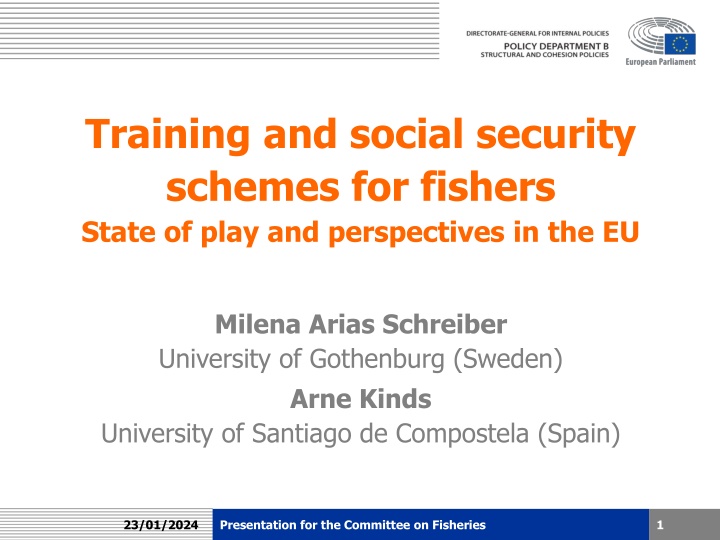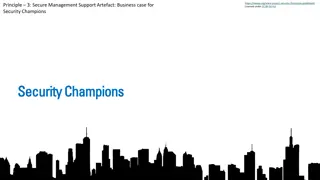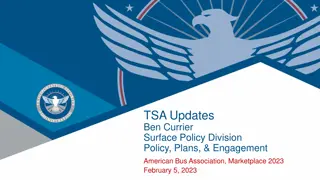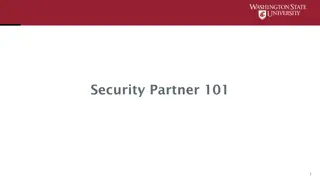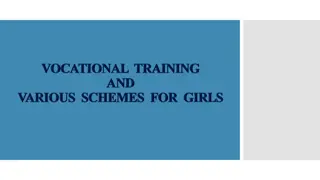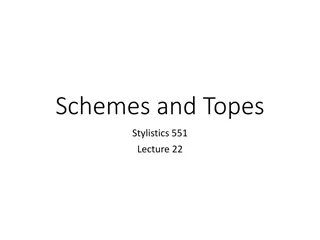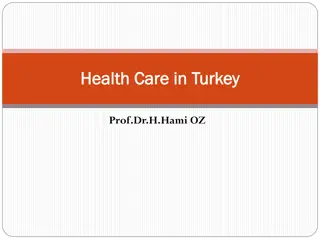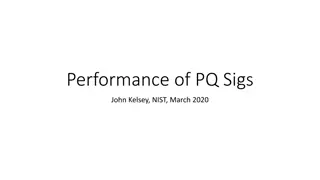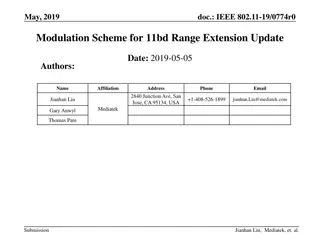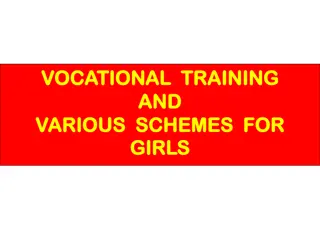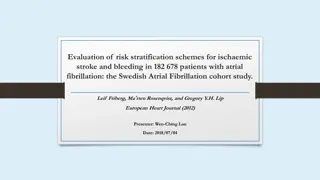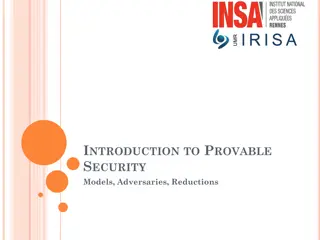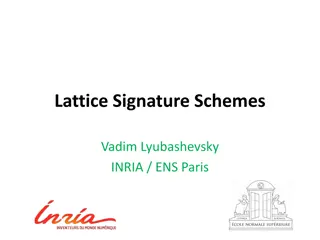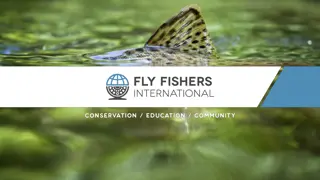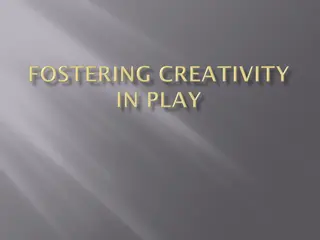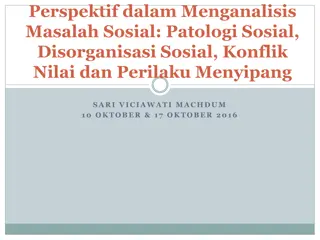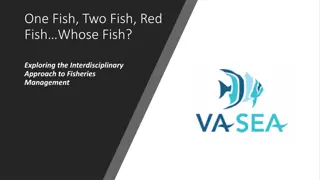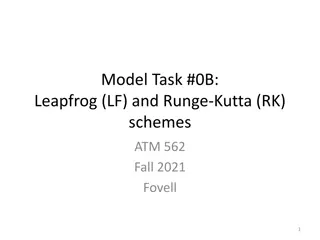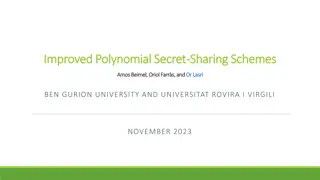Training and Social Security Schemes for Fishers in the EU: State of Play and Perspectives
This presentation discusses the mutual recognition of certificates of competency for fishers across the EU and the social security schemes in place. The focus is on the international legal framework, challenges, and recommendations for improving training and certification standards to enhance safety at sea. Emphasizing the importance of EU-wide ratification and transposition to address human error-related accidents at sea.
Download Presentation

Please find below an Image/Link to download the presentation.
The content on the website is provided AS IS for your information and personal use only. It may not be sold, licensed, or shared on other websites without obtaining consent from the author.If you encounter any issues during the download, it is possible that the publisher has removed the file from their server.
You are allowed to download the files provided on this website for personal or commercial use, subject to the condition that they are used lawfully. All files are the property of their respective owners.
The content on the website is provided AS IS for your information and personal use only. It may not be sold, licensed, or shared on other websites without obtaining consent from the author.
E N D
Presentation Transcript
Training and social security schemes for fishers State of play and perspectives in the EU Milena Arias Schreiber University of Gothenburg (Sweden) Arne Kinds University of Santiago de Compostela (Spain) 23/01/2024 Presentation for the Committee on Fisheries 1
Outline 1. Brief introduction 2. Mutual recognition of certificates of competency of fishers across the EU 3. Social security schemes for EU fishers 4. Conclusions and recommendations 23/01/2024 Presentation for the Committee on Fisheries 2
1. Introduction Background EU Commission Fisheries and Oceans Pact and social pillar of the CFP Objectives Provide an up-to-date overview of the mutual recognition of fishers certificates of competency by Member States. Analyse the functioning of social security schemes for fishers in Member States. 23/01/2024 Presentation for the Committee on Fisheries 3
2. Mutual recognition of fishers certificates of competency Specific objectives of Part 1 of the study Describe the international legal framework governing the training and certification of fishers, and the EU s role in implementing these provisions Safety at sea international framework EU Directive for the recognition of professional qualifications Assess the current state of play of the recognition of fishers certificates of competency across the EU Examine the process of ratification of international standards by EU MS, and identify the challenges that hinder it. 23/01/2024 Presentation for the Committee on Fisheries 4
2. Mutual recognition of fishers certificates of competency International legal framework Safety at sea is governed by three international conventions IMO Torremolinos Intl. Convention for the Safety of Fishing Vessels (1977) IMO International Convention on Standards of Training, Certification and Watchkeeping for Fishing Vessel Personnel - STCW-F (1995) ILO Work in Fishing Convention - C188 (2007) Focus on STCW-F, which stipulates minimum requirements for the training and certification of fishers (skippers, engineer officers, radio operators) Ratification by EU MS is low (only 10 MS to date) Most fatal accidents at sea are caused by human error (EMSA, 2018) An EU-wide standard is crucial, but how to accomplish it? DG MARE is working towards EU-wide ratification, but also considers transposition ( social partners) 23/01/2024 Presentation for the Committee on Fisheries 5
2. Mutual recognition of fishers certificates of competency EU framework for the recognition of professional qualifications Professional Qualifications Directive (Directive 2005/36/EC) Generic framework (non-fisheries specific) Case by case: the recognition procedure is initiated by the applicant and is evaluated by the competent authority of the host Member State Regulated Professions Database (DG GROW): 46 regulated fishing professions giving rise to 78 actual professions in six categories Arias Schreiber et al. (2024) Europ che et al. (2000) 23/01/2024 Presentation for the Committee on Fisheries 6
2. Mutual Recognition of fishers certificates of competency Analysis of the current state of play We identified 46 regulated fishing professions in the EU, across 10 MS Underestimation as some professions fall under categories related to seafaring Required levels of qualification vary greatly between countries Variation is the highest for skipper professions Between 1997-2022, 1740 applications for fishers mobility were processed 41% in the category seaman , and 30% in the category skipper 82% of applications were assessed positively (seaman, skipper and engineer) Latvia and Poland rejected the most applications (together 55% of negative decisions, all applications from Denmark) 23/01/2024 Presentation for the Committee on Fisheries 7
2. Mutual Recognition of fishers certificates of competency Portugal, France, Spain, and Denmark accounted for 97% of mobility applications Spain, Portugal, and Poland were responsible for 89% of decisions These are countries which have already ratified STCW-F, suggesting that STCW-F ratification enhances fisher mobility 23/01/2024 Presentation for the Committee on Fisheries 8
2. Mutual recognition of fishers certificates of competency Challenges hindering ratification and the way forward Efforts to increase EU-wide ratification of STCW-F have had limited success, and 4 MS with a coastline do not consider ratification necessary(Estonia, Finland, Slovenia, and Bulgaria) Reasons remain anecdotal, but according to experts they need to be sought in the high administrative and financial burden, especially for MS with large fleets and/or with fleets which are only fishing within EU waters. The ratification pathway acts as a de facto EU standard if all MS ratify STCW-F Arguably a more robust standard would be achieved through the transposition of the STCW-F Convention into EU law (through a Directive) Codification of such Directive into the Qualifications Directive, would allow mutual recognition of certificates of competency between MS 23/01/2024 Presentation for the Committee on Fisheries 9
3. Social security of EU fishers Specific objectives Describe the international legal framework concerning the social protection of fishers Analyse the social security systems for marine fisheries across Member States, in particular for small- scale fishers Identify best practices that could be replicated in other Member States 23/01/2024 Presentation for the Committee on Fisheries 10
3. Social security of EU fishers Legal framework Social security is a fundamental human right; a national responsibility of each Member State Articles 45, 48 TFEU on free movement of workers as well as Regulation 883/2004 on the coordination of social security systems Council Directive (EU) 2017/159 on the implementation of the ILO Work in Fishing Convention 2007, excludes almost half of the small-scale EU fishers and one third of all EU fishers 23/01/2024 Presentation for the Committee on Fisheries 11
3. Social security of EU fishers State of play Data on social security is missing under the EU Data Collection Framework on fisheries Eight Member States have special laws or regimes for the social security of fishers EU fishers in LSF (40% of total) mostly work under SER and are covered by national social security schemes EU small-scale fishers (almost 62 000) under a non- standard employment relationship and/or self- employed 23/01/2024 Presentation for the Committee on Fisheries 12
3. Social security of EU fishers Analysis Spain and France lead while Cyprus fishers (98% small- scale fishers) are not considered paid workers and lack social security coverage Lack of data and capacity to adapt to current challenges (i.e. climate change, ageing fisher population) Small-scale fishers as economically dependent self-employees 23/01/2024 Presentation for the Committee on Fisheries 13
4. Conclusions and recommendations Mutual recognition of certificates of competency An EU standard for training of fishers rooted in the STCW-F Convention would create a much-needed level playing field for the training of fishers and the delivery of certificates of competency. This promotes fishers mobility through the mutual recognition of certificates of competency, and contributes to the overall attractiveness of the fishing sector 23/01/2024 Presentation for the Committee on Fisheries 14
4. Recommendations Social security of EU fishers Data collection: Clarification: unpaid work, FTEs, self-employed Include: full-time and part-time fishers working under formal contracts, fishers without contracts, fishers with fixed salaries or share-paid or both, self-employed fishers Informal work in the small-sale fleet Collaboration with national agencies in charge with social security 23/01/2024 Presentation for the Committee on Fisheries 15
Social security of EU fishers Best practices identified in Member States that could stimulate generational renewal and attractiveness of the fishing occupation: integrate social security under SER and self-employment in a single specific legislation provide fishers with a minimum monthly wage recognize fishing as an arduous and hazardous occupation and allow early retirement possibilities and special allowances for accidents at sea Offer social security during the periods of training of newcomers, and Prepare for cessation due to higher frequency of extreme climatic events Presentation for the Committee on Fisheries 16 23/01/2024
Many thanks for your attention. 23/01/2024 Presentation for the Committee on Fisheries 17
